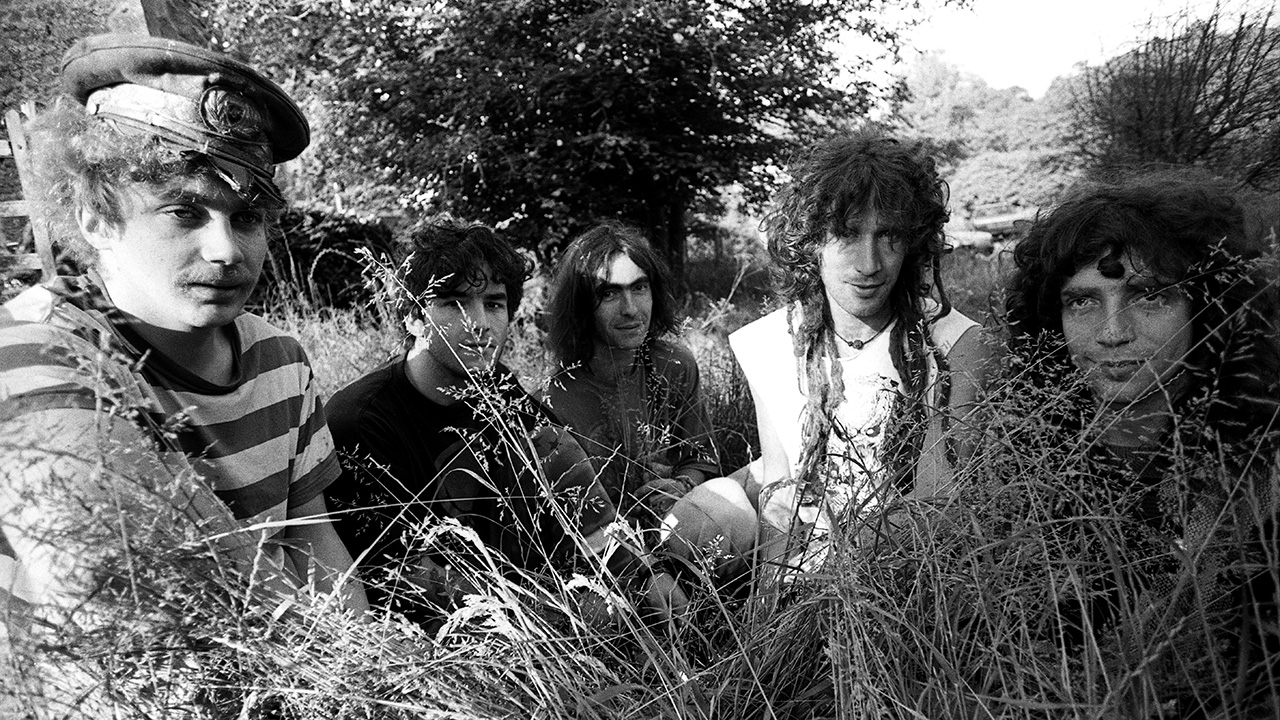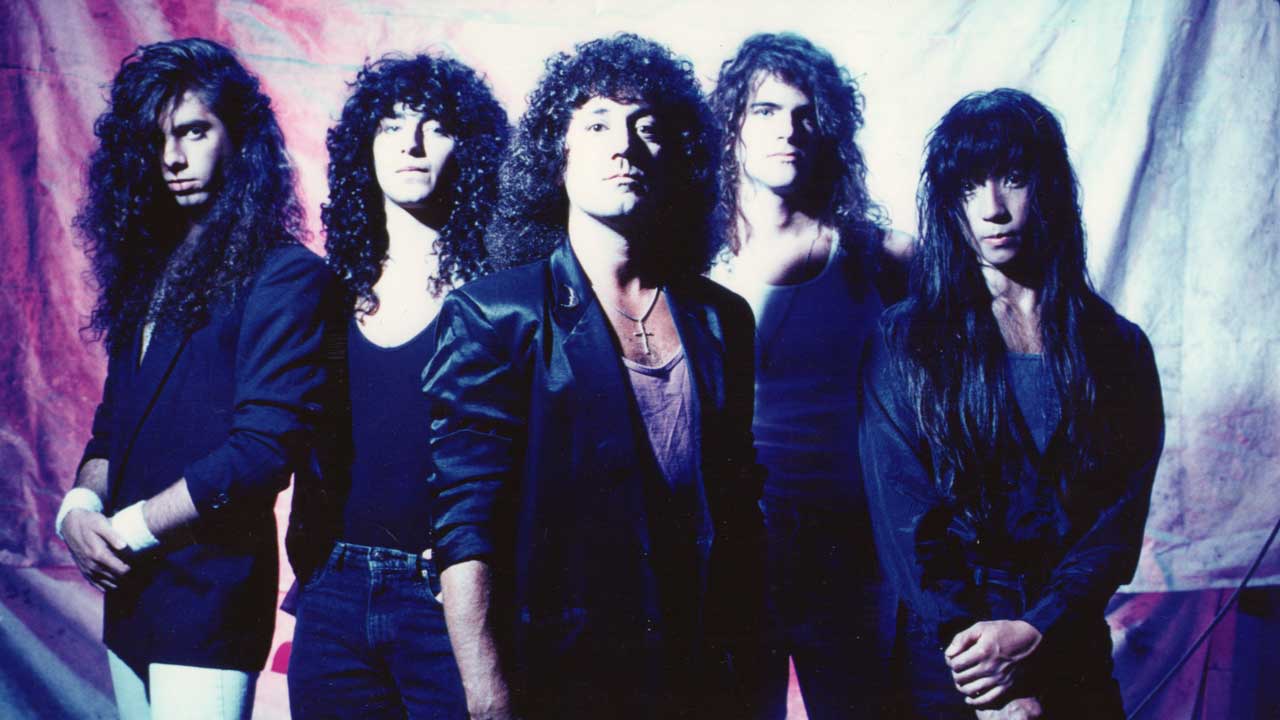“The crusty thing becoming a fashion was really quite odd… people thought it was a real movement so we pretended that it was for a bit, and got quite far up the charts because of that”: the rise of Ozric Tentacles
At one point it seemed Ed Wynne’s band were everywhere – but, driven by a simple desire to create music, he was always more interested in longevity

As he prepared to unveil Ozric Tentacles album Paper Monkeys in 2011, founder, guitarist and sole original member Ed Wynne told Prog how this most idiosyncratic of British musical institutions came into being.
There was a time in the late 80s to early 90s when it seemed almost impossible to go to any kind of prog rock or drug-fuelled entertainment experience without coming into contact with Ozric Tentacles. Perhaps the band that most accurately defined those heady early-90s days when underground music culture – and particularly anything that existed at a midpoint between seemingly disparate genres – was truly gaining a head of steam and threatening to exert its cheerfully stoned influence on the mainstream, the Ozrics bestrode the gig and festival circuit like a multi-legged, colourfully- clothed, crusty colossus, serving up an amorphous but instantly recognisable blend of mind-bending space rock, squelch-heavy acid house and bowel- loosening dub reggae to the red-eyed masses.
“When I was young there was nothing else I wanted to do,” he states. “There was nothing else I really could do, so I pretty much set my sights on doing this for the rest of my life. The big influence on me at the time was anyone who played the guitar. I used to listen Tommy Vance’s heavy metal show on the radio and I’d record all the guitar solos! At some point Steve Hillage and Gong and loads of other, spacier bands came into the equation, around ’78 or ’79, and that was it really. I was obsessed by the whole thing and I couldn’t leave it alone.”
It’s not hard to see that Ozric Tentacles belong squarely in the prog-friendly family tree that also includes the unorthodox likes of Hawkwind, Gong and Here & Now; bands that hovered on the fringes of prog without ever deliberately belonging to it, and bands that were as much dedicated to saluting an alternative mindset as they were to propagating a specific set of musical ideas. Fittingly, Ed Wynne’s boys were among the first rock bands to fully embrace dance music.
“At first I thought it was a bit silly, the whole acid house thing and all that kind of music, but then I realised that we could take that sound and actually bend it quite far,” he says, with a wry chuckle. “The noises that were generally put into that kind of music at the time were right up my alley, all the bleeping and squelching. As for the reggae thing, that came about after I went to a Here & Now gig and they started putting reggae into what they were doing. I saw the audience were enjoying it and thought: ‘Okay, we can try a bit of that too!’”
Although the Ozrics’ recorded legacy began humbly with a series of self-financed cassette-only releases, their discography began in earnest in 1989 with the magnificent Pungent Effulgent. A sprawling, smart and joyfully atmospheric splurge of spiralling leads, skittering rhythms and arse-wrenching bass, it laid down a blueprint that the band have been gleefully messing with ever since.
The trio of albums that followed it – Erpland (1990), Strangeitude (1991) and Jurassic Shift (1993) – did so well that the band eventually found themselves on the verge of genuine mainstream appeal; a phenomenon aided by the fact that so-called crusty culture was experiencing a media- led heyday, with the likes of The Levellers and Chumbawamba conquering the charts, and untamed dreadlocks becoming the de rigueur student barnet of the age.
Sign up below to get the latest from Prog, plus exclusive special offers, direct to your inbox!
“The crusty thing becoming a fashion was really quite odd,” notes Wynne. “People wanted to know what clothes we were wearing and where we got them from, which was really bizarre! We were all just wearing whatever was on the top of the pile on that day, you know? But people thought it was a real fashion movement and so we pretended that it was for a bit and Jurassic Shift got quite far up the charts because of that. We found it pretty funny!”
Jurrasic Shift undoubtedly marked a commercial high point for the Ozrics, but they have never truly taken their collective foot off the gas, preferring instead to beaver enthusiastically away in the shadows, churning out albums at regular intervals – each one different, but always the same, to borrow a phrase from the late John Peel. As Wynne explains, the new album marks the beginning of a new chapter for the Ozrics and the partial revitalisation of their oddly ageless sound.
“Paper Monkeys has been about having the time to just think of a weird idea in the morning, with a cup of tea on the go, and just noodle around and develop it from there,” he says. “The fundamental difference for me is that I’m recording on a completely different rig from anything I’ve used before. I’m doing it on the computer now, whereas up until the last one it was all done on an analogue mixing desk. Now I’ve got the luxury of being able to hear a little sound in the music somewhere and then climb right in there and polish it a little. Maybe there’s more room to get closer to what I’m trying to say.”
Wynne and his family of eccentric sound-makers seem to have been rejuvenated by the internet age, as more and more people from unexpected parts of the world discover their music. With plenty of touring planned, Ozric Tentacles remain one of our finest advertisements for doing what comes naturally. Even so, it remains hard to believe that, back in 1983, Ed Wynne ever foresaw his career as a space rock troubadour lasting quite this long...
“Well, yeah, I did expect to still be doing this all these years later actually!” he laughs. “I’m going to be doing it forever, or for as long as I can. I just know it so well and making music is the best videogame in the world, really. I make a gourmet style meal once a day, for the family, and that’s essential for my state of mind too, because it means I get away from the computer and touch some real objects occasionally. But this is what I love doing. Why would I stop?”

Dom Lawson began his inauspicious career as a music journalist in 1999. He wrote for Kerrang! for seven years, before moving to Metal Hammer and Prog Magazine in 2007. His primary interests are heavy metal, progressive rock, coffee, snooker and despair. He is politically homeless and has an excellent beard.
